5 Cooking Myths You Should Ignore
Turns out some "tricks" for boiling pasta and cleaning your favorite pan don't work so well after all...but here's what will do the job.
By Lynn Andriani
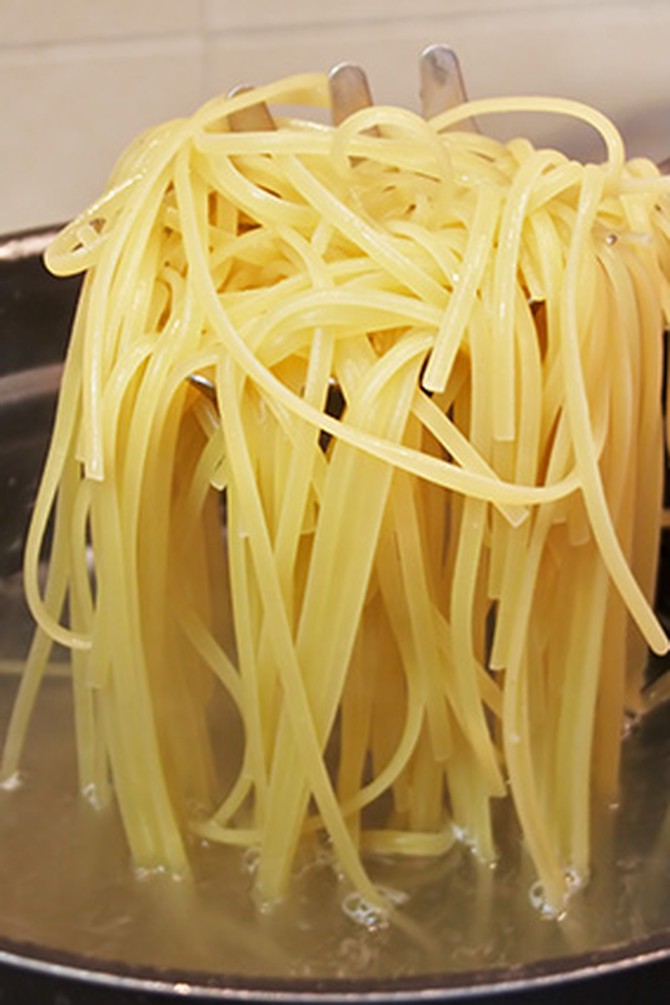
Photo: Thinkstock
Add Oil to Pasta Water to Prevent Noodles From Sticking
We've all seen the instructions on the back of the fresh-pasta package: Add a spoonful of oil to the cooking water to keep your fettuccine from turning into a big blob. "That's just a waste of oil," says chef Alfred Portale of New York City's Gotham Bar and Grill. Salt the water (which doesn't have anything to do with sticking; it just seasons the pasta), stir every few minutes while the noodles cook, and once you've drained them, toss with a tablespoon of olive oil to keep them separated.
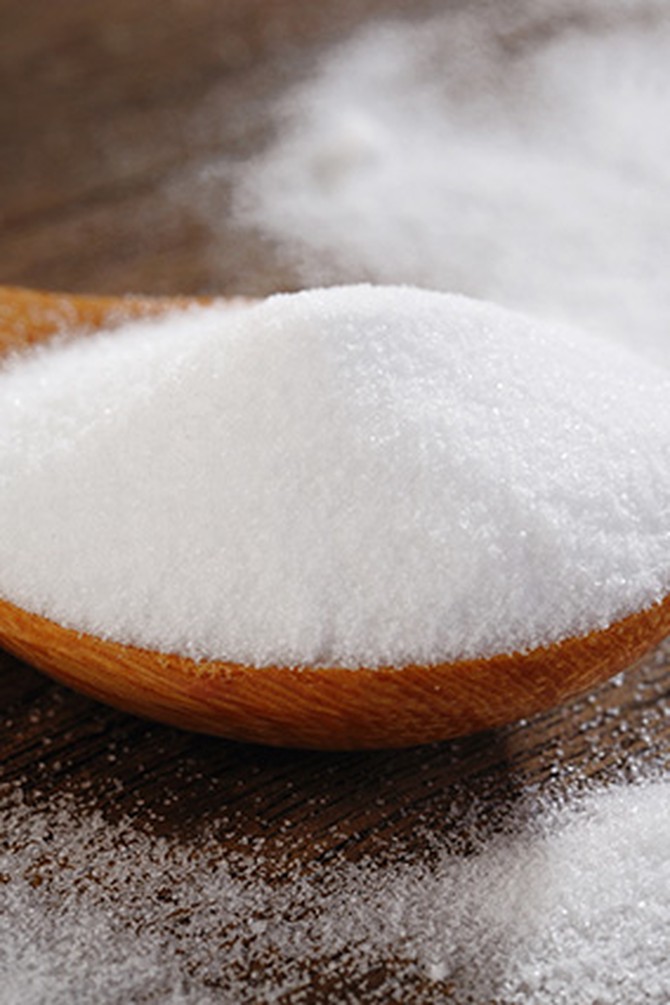
Photo: Thinkstock
Replace Baking Powder Every Six Months
Leavening agents like baking powder do have a shelf life (old ingredients are often the reason for flat baked goods), but don't automatically assume a canister is useless if it's past the six-month mark. You can test yours by sprinkling a spoonful into a cup of warm water; if it makes the water effervescent, it's fine to use.
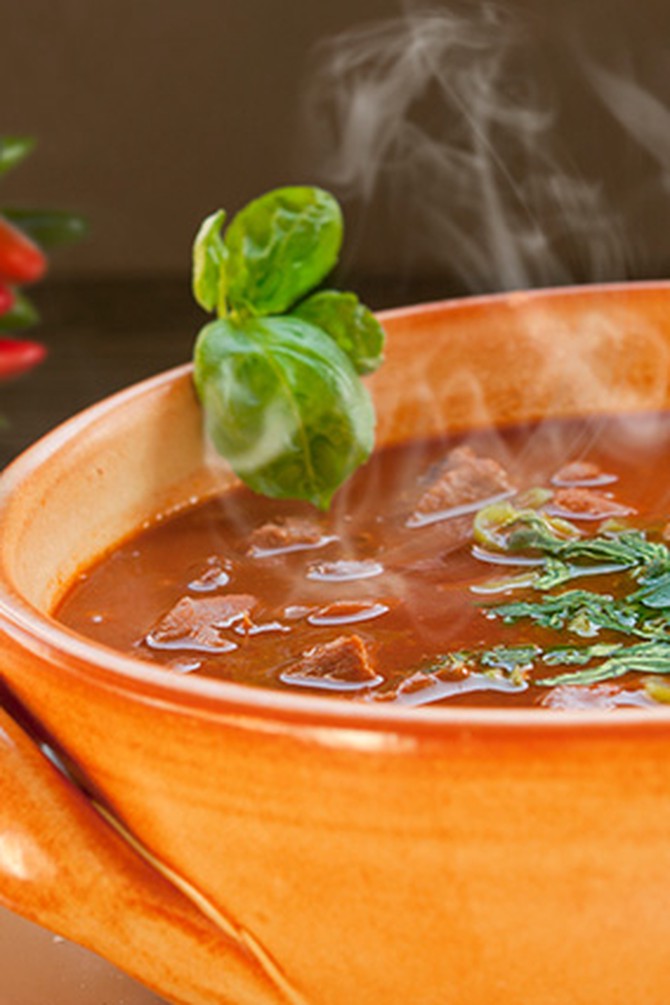
Photo: Thinkstock
Let Hot Food Cool Completely Before Refrigerating It
It's true that putting a big pot of piping hot soup directly into the fridge isn't ideal (it makes the motor work harder), but the other extreme—letting that minestrone sit out until it's cold and then packing it up for storage—isn't great, either (because microorganisms that could lead to foodborne illness tend to multiply in conditions between 40 degrees and 140 degrees). Lisa Yakas, who works in the consumer products division of NSF International, a nonprofit public health and safety company, suggests transferring the hot soup to smaller containers, which will help it cool more quickly than it would in the pot. They can sit on the counter, uncovered, for two hours. Then, snap on the lids and refrigerate.
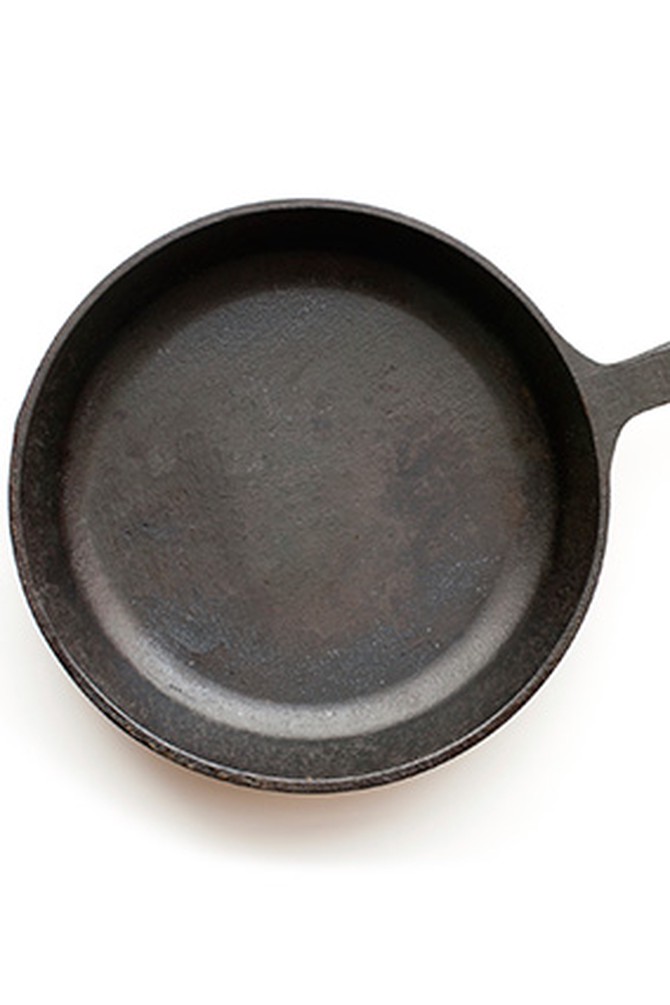
Photo: Thinkstock
Don't Use Soap on Cast Iron
Although cast-iron pans look tough, they can be high maintenance: The conventional wisdom is to avoid washing them with soap, not to put them in the dishwasher and not to let them air dry (use a towel or they'll rust). Those last two rules are important to follow, but George Duran, Chef Ambassador for the cookware company IMUSA, says if a pan is well seasoned, it's fine to wash it in cold water or with a little bit of soap. The oil you used to season the pan should prevent the cleaner from penetrating too deeply. Duran also shared this nugget: Use kosher salt to scrub off sticky residue, then re-season the pan by heating it in a warm oven and rubbing it with oil.
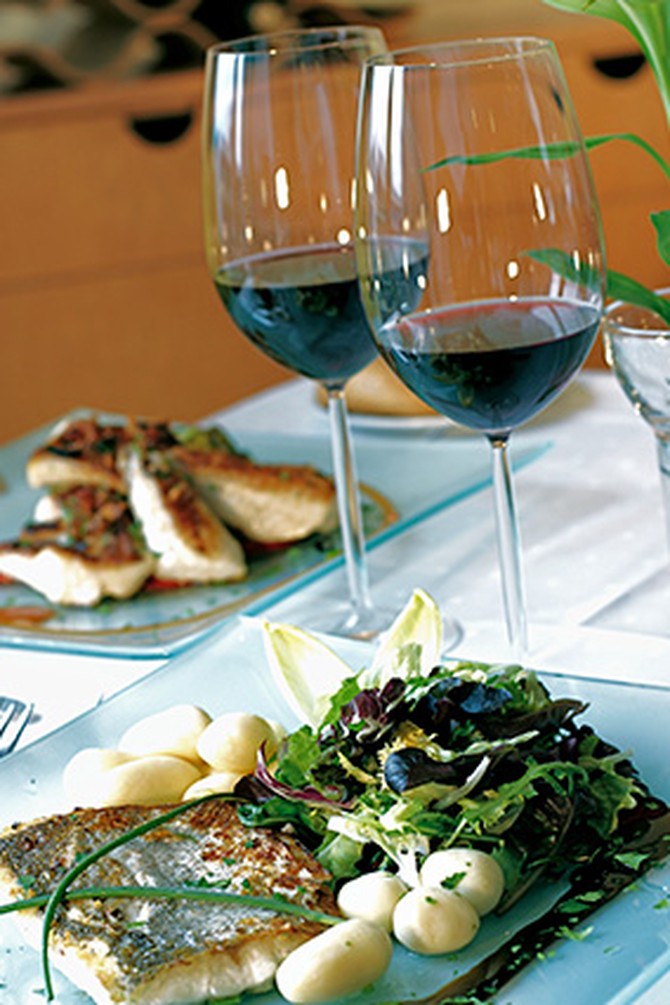
Photo: Thinkstock
Don't Drink Red Wine with Fish
Red wines generally have a lot of tannins, which come from grape skins and seeds and are often described as tasting bitter and puckery (tannins are also why strong black tea can taste astringent). So tannic reds—like cabernet or merlot—can react with the fish oil in seafood and make it taste bitter and even metallic. (The proteins in red meat soften the tannins, making the wine taste smooth and fruity.) But Dini Rao, Chief Merchandise Officer at the wine clubs Lot18.com and TastingRoom.com, actually recommends some reds with fish. Pinot noir and Beaujolais are two (they happen to be lighter reds) that can beautifully complement any fillets from halibut to salmon.
Next: Store-bought shortcuts: What's worth it, what's not
Next: Store-bought shortcuts: What's worth it, what's not
Published 04/05/2013

